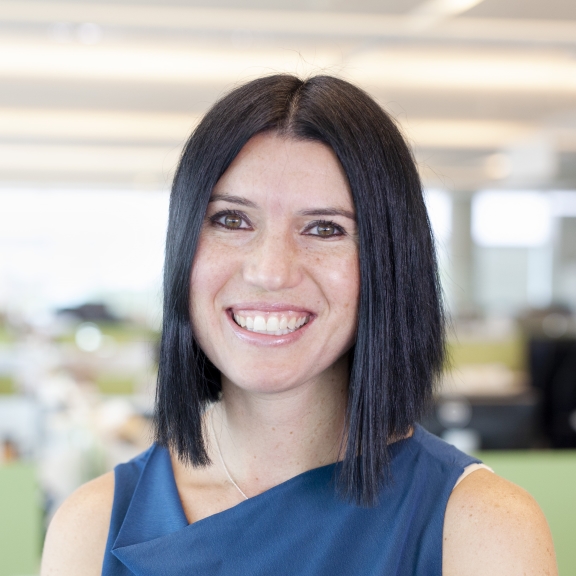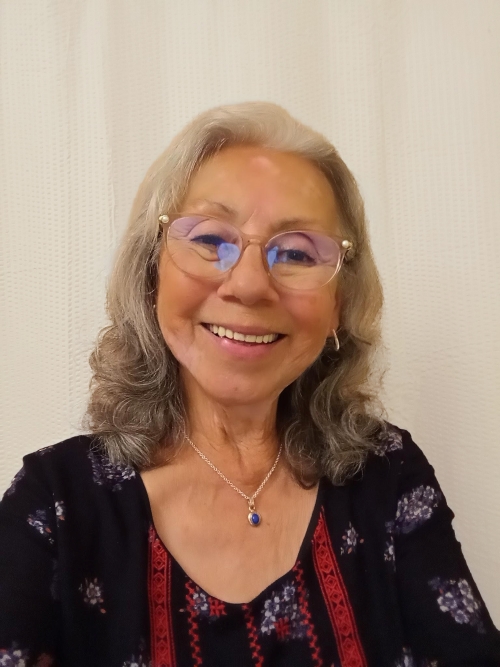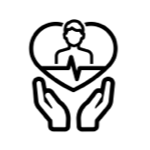Putting Patients First 2024: Building learning communities
The conference advances learning communities to improve health and health research ecosystems.
Leaders in the health and health research communities, from patients to policy makers, are welcome.
There is no cost to attend.
The BC SUPPORT Unit, part of Michael Smith Health Research BC, is hosting the annual Putting Patients First conference.
Join us on November 14, 2024
Vancouver Marriott Pinnacle Downtown Hotel
1128 W Hastings St, Vancouver, BC
In-person registration is now closed.
To watch the virtual livestream, no registration is required. The livestream link will be available on November 12. Check here for updates.
Who can attend?
Leaders in the health and health research ecosystems, from patients to policy makers, are welcome.
This includes health-care providers, health system decision-makers, patients, people with lived experience of health issues and the health care system, health researchers, and students and trainees.
What’s new?
- Join the waitlist: We are at capacity for the conference. Sign up for the waitlist. To watch the virtual livestream, no registration is required.
- Program available: Learn about the exciting conference sessions. View the program.
- Keynote speaker: Dr. Robert Reid is our keynote. Learn more.
Sessions in the main room will be livestreamed and recorded.
Posters are available for viewing throughout the day.
Time |
Event |
Location |
| 7:00 a.m. – 8:00 a.m. |
Registration and breakfast |
Lobby |
| 8:00 a.m. – 8:15 a.m. |
Opening prayerElder Ruth Alfred |
Main room |
| 8:15 a.m. – 8:30 a.m. |
Welcoming remarks |
Main room |
| 8:30 a.m. – 9:30 a.m. |
Keynote: Dr. Robert ReidHazel McCallion Research Chair in Learning Health Systems, Institute for Better Health
Hear about developing learning health systems in North America. This includes using a whole-systems approach, spreading and scaling solutions, and centring equity.
Moderated by: Monica Mamut, Unit Director, BC SUPPORT Unit |
Main room |
| 9:30 a.m. – 10:00 a.m. |
Dr. Kerry KuluskiDr. Mathias Gysler Research Chair in Patient and Family Centered Care, Institute for Better Health
Learn how three Ontario hospitals deliver high-quality acute and community care. Hospital teams use new approaches that centre on patients and families. |
Main room |
| 10:00 a.m. – 10:30 a.m. |
Health break |
Lobby |
| 10:30 a.m. – 12:45 p.m. |
Interactive sessions
In concurrent sessions, participants will collaborate in small group activities to solve problems around important issues, including social identities, accessibility, and learning communities.
Poster abstracts will also be available for viewing. There will be opportunities for networking. |
Various |
| 12:45 p.m. – 1:45 p.m. |
Lunch |
Lobby |
| 1:45 p.m. – 2:45 p.m. |
Panel: Perspectives on the patient-oriented research experience
Moderated by: Ellie Griffith, Assistant Vice President Research Programs, Health Research BC |
Main room |
| 2:45 p.m. – 3:30 p.m. |
Awards and abstract winner presentations |
Main room |
| 3:30 p.m. – 3:45 p.m. |
Closing remarksLisa Ridgway, patient partner Stirling Bryan, Chief Scientific Officer, Health Research BC |
Main room |
| 3:45 p.m. – 4:00 p.m. |
Closing prayer |
Main room |

Keynote speaker: Robert Reid
Hazel McCallion Research Chair in Learning Health Systems, Institute for Better Health
Senior Vice President, Science, Trillium Health Partners
Dr. Robert Reid is a global expert and thought leader in population health, learning health systems and primary care.
He is best known for his work in developing and evaluating a patient-centred medical home at Group Health Cooperative, now Kaiser Permanente. Robert is currently providing expertise in the redesign of Ontario’s health-care system through the Ontario Health Teams initiative.
With the Institute for Better Health, Robert focuses on generating new ways to engage, design, deliver and finance health care. He also creates partnerships with patients, caregivers and communities to improve population health.

Plenary speaker: Kerry Kuluski
Dr. Mathias Gysler Research Chair in Patient and Family Centered Care, Institute for Better Health, Trillium Health Partners
Associate Professor, Institute of Health Policy, Management and Evaluation, University of Toronto
In her research, Dr. Kerry Kuluski focuses on care quality challenges in our health-care system, including care transitions using multiple methods. She is also exploring new strategies to better collect, make sense of, and act on patient experience data.
She works in partnership with patients, families and care providers to co-design strategies and improve health-care experiences. She launched a new course at the University of Toronto on patient and caregiver engagement in research. Kerry also co-created a seven-part virtual learning series on engagement and co-design with and for patients, caregivers and communities.
Before her current roles, Kerry was a scientist at Sinai Health System, where she grew her program of research on the patient and caregiver experience. She completed her PhD in health services research at the University of Toronto and a master’s in social work at Lakehead University.

Opening prayer: Elder Ruth Alfred
Ruth is of Mamtagela ancestry through her Grandfather Price Bruce, Grandmother Julia Nelson-Bruce and mother Florence Bruce-Stadnyk, and Ukrainian through her father Andrew Stadnyk.
Ruth was born and raised in Alert Bay, marrying into the Namgis Nation. She left Alert Bay in 1986 to find work when the fishing industry collapsed. She raised two daughters as a single parent, eventually moving to North Vancouver in 1990 after both girls went on their own. Ruth has six grandchildren and three great-grandchildren. She and her partner have lived in North Vancouver for 38 years.
Ruth worked various jobs in retail until becoming the Elder Program Coordinator at the Vancouver Aboriginal Friendship Centre for two years. She worked at the Pacific Association of First Nations Women for 15 years until her retirement in 2017. In 2018, Ruth became a member of the Elder Knowledge Keepers at Indigenous Health and Wellness, which she was a part of until recently. She was the Elder in Residence at Heatley Community Health Centre and Ravensong Clinic, doing one-on-one sessions with patients.
Ruth also does patient visits at Lions Gate Hospital and Vancouver General Hospital. For over 23 years, she worked as an outreach worker for Indigenous and non-Indigenous people in the Downtown Eastside, assisting with housing, medical assistance and support at hearings for Residential School Survivors after helping them with their claim forms for restitution.
Ruth attended North Island Secondary School, the North Island College Early Childhood program and the Native Education College Office Administration Program.
What are learning communities?
Learning communities are groups of people with shared interests and goals, multiple perspectives, experiences, and expertise that meaningfully collaborate to solve health and health system problems.
Are there opportunities to share my work?
Submissions are now closed. Successful teams have been notified.
This year, we were thrilled to receive over 90 submissions for the conference.
68 submissions met the eligibility criteria. A panel reviewed the 68 submissions and selected 55 to share as posters at the conference.
Frequently asked questions (FAQ)
I want to watch the virtual livestream and will not attend in-person. Do I need to register?
No, registration is only required for in-person attendees.
Some of the conference sessions will be livestreamed. The livestream link will be made publicly available. More details to follow.
Where will the conference take place?
Putting Patients First will be hosted in Vancouver, BC, at the Vancouver Marriott Pinnacle Downtown Hotel. If you plan to attend in-person, you must register.
Vancouver Marriott Pinnacle Downtown Hotel
1128 W Hastings St, Vancouver, BC
https://www.marriott.com/en-us/hotels/yvrdt-vancouver-marriott-pinnacle-downtown-hotel/overview/
Some of the conference sessions will be livestreamed. If you only plan to watch the livestream, you do not need to register. More information on virtual sessions will be available in the coming weeks.
Will the sessions be recorded?
Photography, audio or video recording will take place in all designated conference spaces.
If you do not wish to be included, please notify staff at the registration desk. A modified name tag and/or lanyard will be provided to those people who do not want to be recorded. Specific seating will also be provided in the main presentation room for people who do not want to be recorded. Read the full AV notice.
Some conference sessions will be recorded and made available following the event.
Will masks and hand sanitizers be provided at the event?
We are encouraging all attendees and staff to wear masks to protect themselves and others. Masks and hand sanitizers will be available at the check-in desk.
Is this a fragrance-free event?
Yes. Please refrain from wearing cologne, perfume or other scented products.
Where can I learn about previous years of PPF?
Contact us
-
Questions?
no position
ppf@healthresearchbc.ca
no phone





